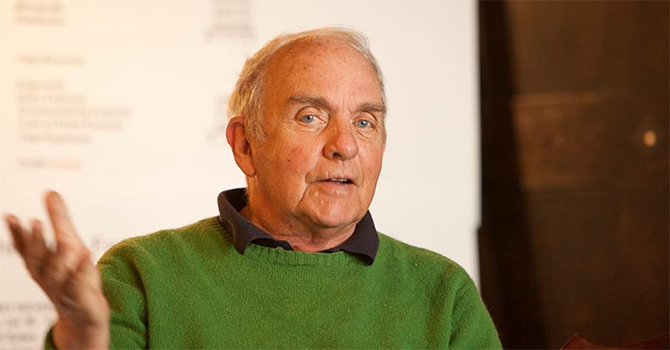I was leading a men’s retreat on spirituality in midlife recently, one where the participants had been invited to read a book of mine on the topic. It was a memoir in which I explore the possibilities and challenges of living with God in our middle decades.
When the retreat ended, one of the participants, someone newly retired who had been devouring the books of James Patterson in his abundant spare time, approached me.
“I like to be honest,” he said, “so I need to tell you what I thought of your book: There was too much I.”
“Well, that is the trick with memoir. It’s hard to avoid the I,” I said.
I appreciated his critique. For preachers — and leaders in general — stories can be some of the most effective tools of our trade. The ones that come most easily to us are often about ourselves, but there’s a risk in using them.
When I teach preaching, I tell my students that they need to help their listeners to imagine the possibilities of the change the gospel can make in our lives and in the world. That connects heady theological expositions to the real lives of real people, here and now.
For any leader, the ability to speak and write in this way is crucial, whether to reinforce behaviors consistent with an organization’s mission or to cast a vision for a flourishing future.
Much of my students’ work is about themselves. But have they simply grabbed the lowest hanging fruit? Are they engaged in subconscious self-aggrandizement? Is there a better story suited for the context?
As my critic at that retreat told me, sometimes there’s just too much I.
But the death Monday of Frederick Buechner, who inspired me to write the way I do (so much I!) has given me the occasion to reflect on what he taught me about using the first person well. What makes using it worth the risk?
I’ve been reading Buechner for at least two decades. At key moments for me, his memoirs have been important companions. His stories have intersected with the story of my own life in ways that have helped me see myself — and therefore God and others — more truthfully.
Fifteen years ago, when I was a pastor trying to decide whether to ask the bishop for a different appointment, I was on a retreat and had brought Buechner’s second memoir, “Now and Then.”
Coming to a decision was agonizing for me, and during the free time one afternoon, I stayed in my room to read, hoping I might find some hint of direction for my life in Buechner’s.
I read about a time when he was trying to decide between being a minister and a writer. As my head pounded with the weight of my decision, I reached the climax of his own discernment: “[N]o clear answer came, none that I could hear anyway, and maybe that itself was the answer: that there was no clear right, no clear wrong, but that whichever way I chose, I would have to make it right, both for me and for the one I prayed to.”
The truth of this struck me and strikes me still. Sometimes the answer is, “Choose, and make it right.” Sometimes the answer is no answer at all.
Now, as I reflect on what storytellers can learn from Buechner, more important than the particular insight seems to be the nature of what he was doing.
Buechner allowed the story of his own discernment, the particulars of his first-person narrative — so different from mine — to open into a more universal insight.
I encountered a truth beyond the specifics of his story, but could I have discovered it without them?
Buechner does this again and again in his memoirs. Whether he’s remembering his father’s death by suicide, his own struggle with his daughter’s eating disorder, or how he came to write one of his books, he allows his unique stories to open a window into wider vistas.
He offers a new vantage point that can help us see ourselves more truthfully and therefore live more faithfully the particulars of our own lives.
As he says later in the same book, what he was “trying to do as a writer and as a preacher was more and more to draw on my own experience not just as a source of plot, character, illustration, but as a source of truth.”
When we tell our own stories, whether preaching a sermon or addressing a board of directors, these questions could become our guide: Will our stories help others look at their lives more truthfully? Live in the world more faithfully? Have we drawn on our own experiences as a source of truth?
If we become lost in a story about ourselves, it’s unlikely our hearers will gain much from what we tell. But if we allow ourselves to touch a wider truth in the narrowed lens of our particular lives, our hearers might find a measure of hope, healing and inspiration through what we convey.
That’s certainly what Frederick Buechner has done for so many. Including me.
And it’s why I will still risk using I.


















